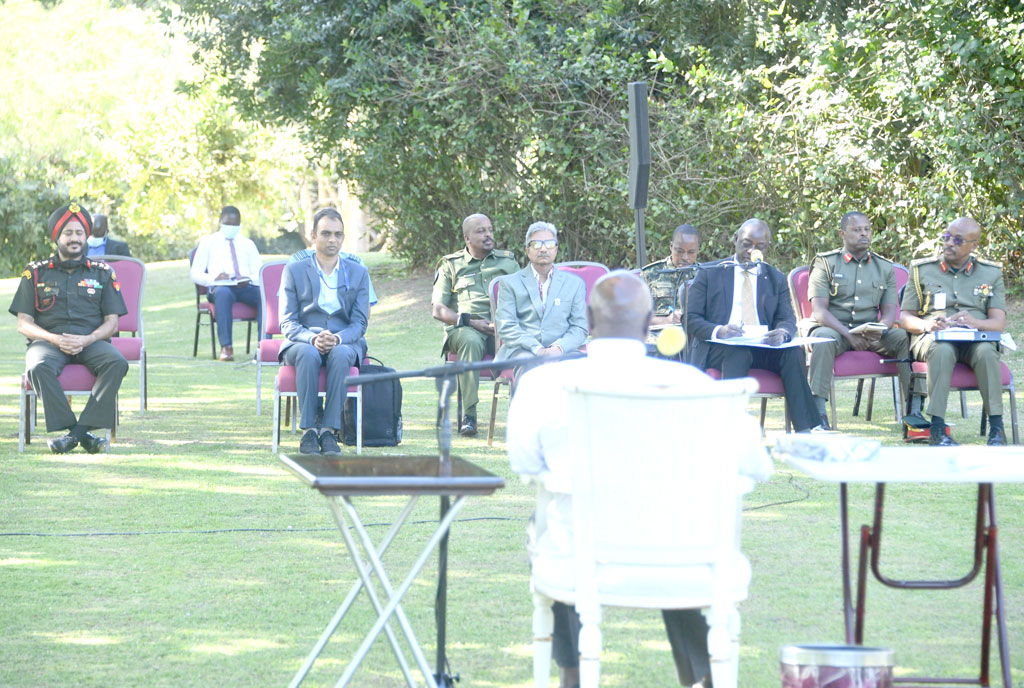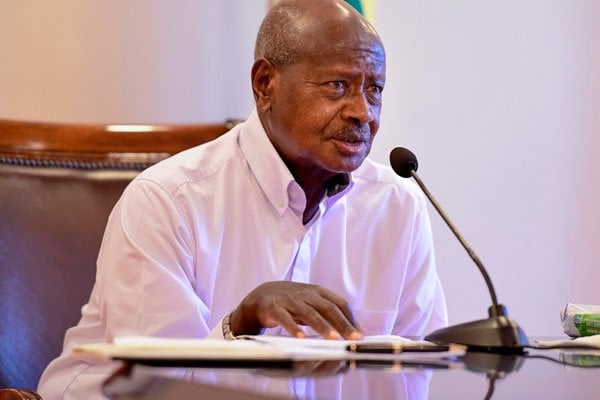Museveni okays forensics university

President Museveni meets leaders from the National Forensic Science University of India at State House Entebbe on September 26, 2022. PHOTO/PPU
What you need to know:
- The Indian-affiliated university will be established in four phases, with the first expected to start this November to March next year with four courses.
President Museveni has welcomed the establishment of the National Forensics Science University in Uganda.
The university will provide specialised training in forensics to security and law enforcement agencies as well as other government and private sectors.
It will be the first in Africa and will be affiliated to the National Forensic Sciences University (NFSU) of India, which is dedicated to forensic, behavioral, cybersecurity, digital forensics, and allied sciences.
“That’s a very good plan because it deals with capacities in forensics of cyber, biochemistry and UAVs which are all needed for security, defence but also anti-crime, ”Mr Museveni said while meeting a delegation of leaders from NFSU at State House Entebbe on Monday.
He added: “If the university starts operations in November, we will have a high potential of cost recovery where people, especially government departments and private businesses like banks, will pay to boost capacity for their staff in forensics.”
According to President Museveni, establishing an NFSU campus in Uganda will improve the efficiency of security agencies in Uganda and Africa.
The Minister of Defence and Veteran Affairs, Mr Vincent Ssempijja, led the Indian delegation.
The Uganda Peoples Defence Forces (UPDF) chief of training , Brig Gen Mathew Gureme, said about 130 acres of land between the Uganda Junior Command and Staff College Gaddafi, Mpumudde and Kimaka have been allocated for the university structures.
For the start, the university will be occupying renovated structures at the Uganda Junior Command and Staff College Gaddafi.
Brig Gen Gureme said the establishment of the university will be done in four phases, with the first expected to start in November to March next year with four post-graduate diploma courses in cyber security, digital forensics, homeland security and fingerprint science and question document.
Brig Gen Gureme said the Indian delegation has identified seven technical staff with master’s degrees in forensic science from India and are already working with the Ministry of Internal Affairs.
“We request that they be attached to the Ministry of Defence for this period because they want to develop them as the future professors who will run the school,” Brig Gen Gureme said.
He added that 23 people who have already done the course have been identified to start as teaching assistants in the university.
“The university has encouraged us to start a roadmap for a Doctor of Philosophy (PhD) with these people so that they become the future professors in the next five years to run the university,” Brig Gen Gureme said.
He added that the team also hopes to start Africa’s first toxicological botanical gardens to facilitate investigations into Africa’s first drone forensics airstrip.
“They also plan to put a state-of-the-art cyber defence centre. The establishment of the centre is expected to cost about $20 billion,” Brig Gen Gureme said.
The director at NFSU in India, Prof S.O Junare, said they will conduct specialised programmes for defence, police, and students.
Mr Museveni said he would invite the Indian premier, Mr Narendra Damodardas Modi, to commission the university once its construction is complete.
Last month, the government signed a memorandum of understanding with the Indian university.
Other courses
The UPDF chief of training, Brig Gen Mathew Gureme, said 10 other courses, targeting the Judiciary, law enforcement agencies, banks, insurance, and Uganda Wildlife Authority, will also be introduced.




